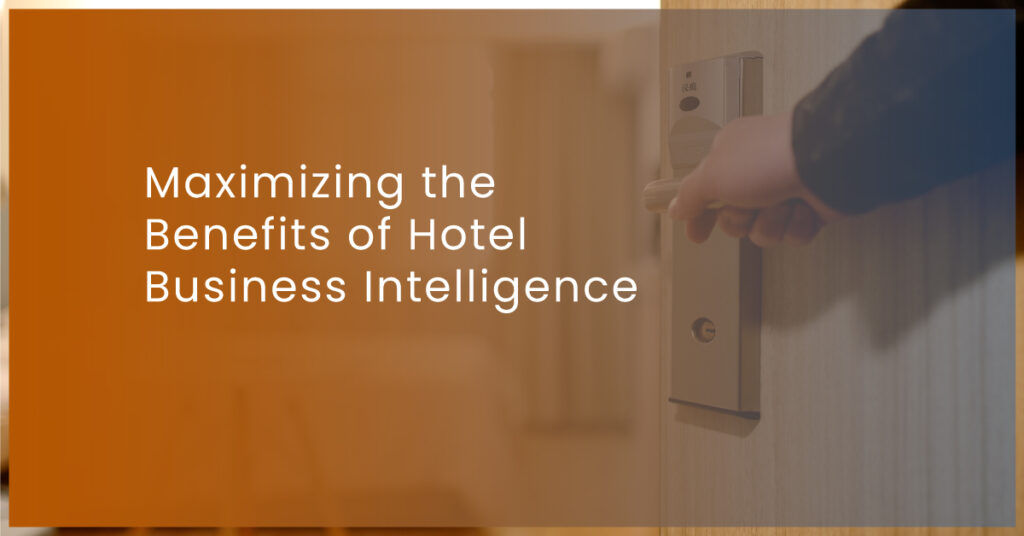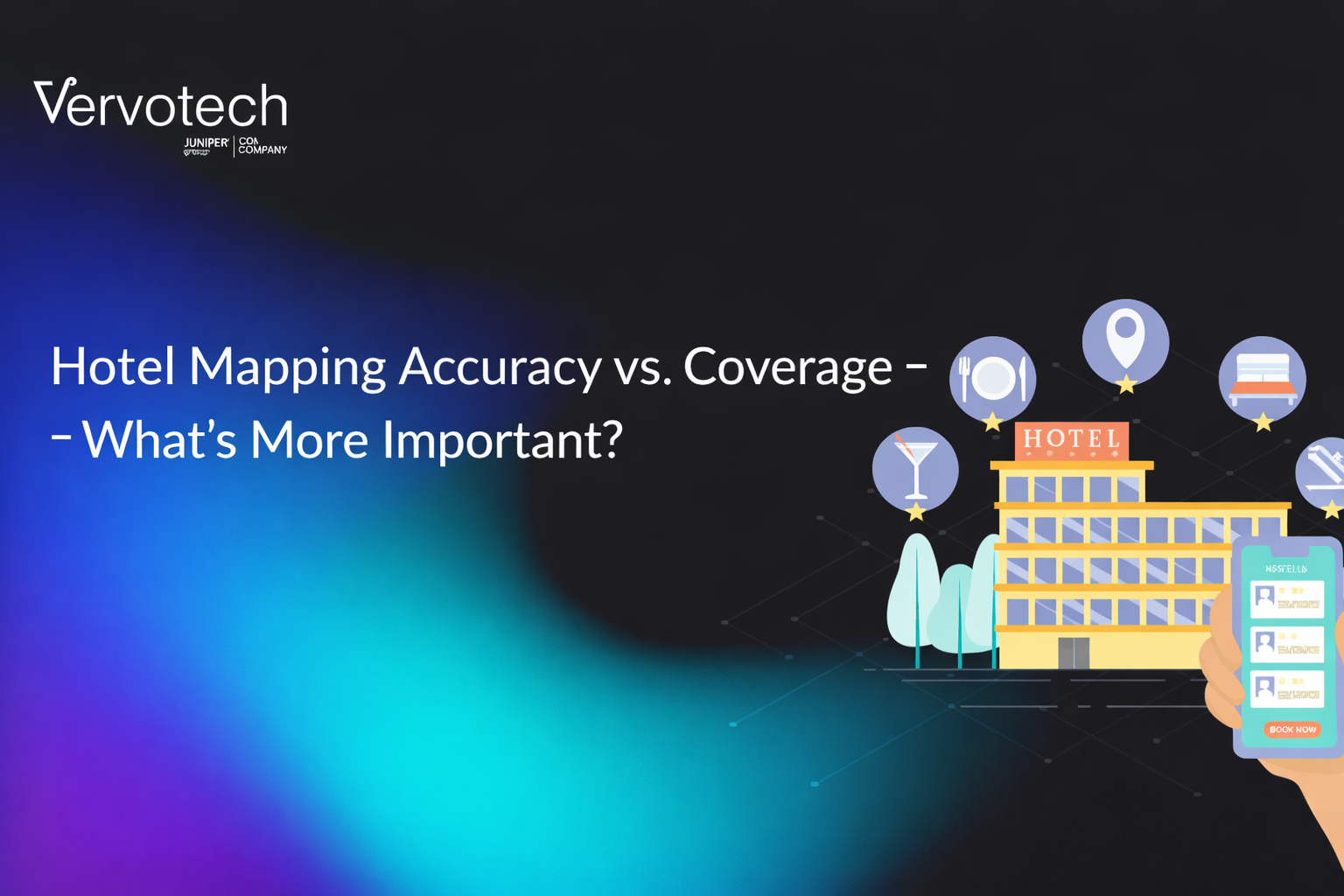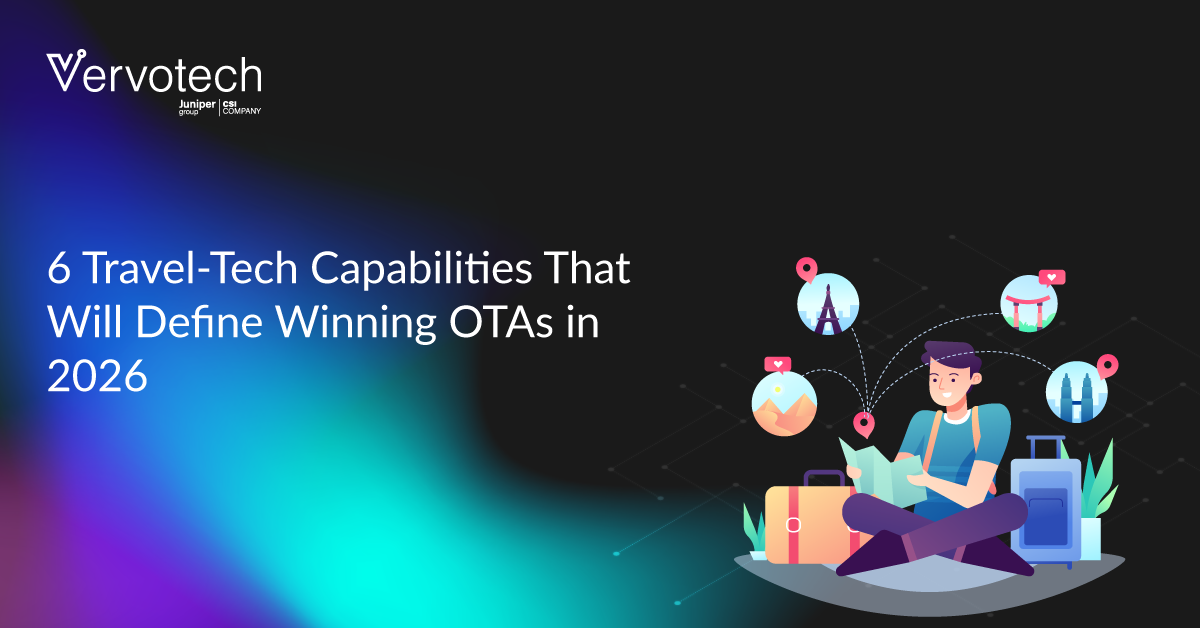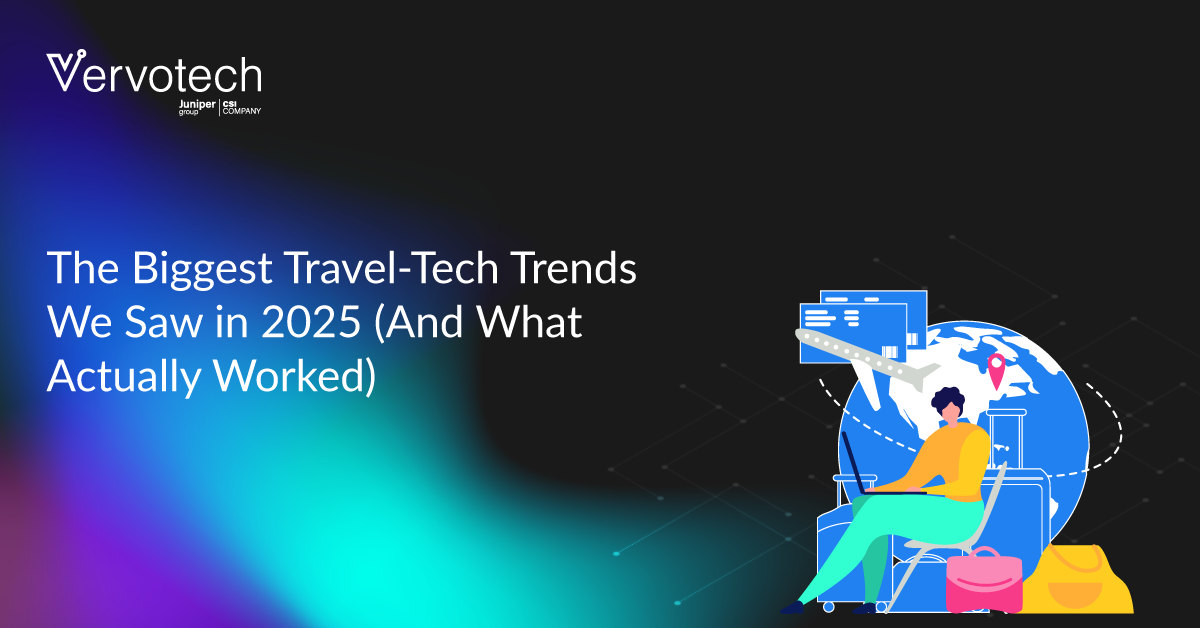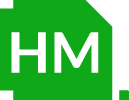The hotel industry constantly evolves, with new technologies, trends, and competition arising daily in every nook and corner. In order to stay ahead of the game, hoteliers need to be able to make data-driven decisions based on accurate, up-to-date information. It is where hotel business intelligence comes into the picture.
Business intelligence, or BI, refers to the use of various technologies, applications, and processes to gather, integrate, analyze, and present data from multiple sources. By utilizing BI, hotels can gain valuable insights into their operations, performance, and market trends, which can help them to improve efficiency, increase revenue, and gain a competitive edge.
In this article, we present you a method to approach hotel business intelligence that will help you maximize its benefits. To make it easier for you, we dissect it into three parts, understanding, analysis, and action on business data. Let’s have a look!
1. Understanding the available data
The first step in using hotel business intelligence is understanding the data that is available to you. This data can come from a variety of sources, including:
- Property management systems (PMS)
- Point-of-sale systems (POS)
- Booking stats from Customer relationship management (CRM) systems
- Social media and online review sites
- Market research and industry reports
In order to fully leverage the power of BI, hotels need to be able to integrate data from all of these sources and analyze it in a meaningful way. This requires a solid understanding of the data and the ability to clean and prepare it for analysis.
Time and money are your scarcest resources. You want to make sure you’re allocating them to the highest-impact areas. Data reveals impact, and with data, you can bring more science to your decisions.” – Matt Trifiro, CMO, Vapor IO.
2. Finding actionable insights
Once you understand the data well, the next step is to analyze it and turn it into actionable insights. This is where the power of BI really comes into play.
There are a variety of tools and techniques that can be used to analyze and visualize data, including:
Hospitality Reporting and Analytics: It allows hoteliers to see key metrics and performance indicators at a glance and drill down into the data for more detailed analysis.
Data mining and modeling: These techniques can help hotels to identify patterns and trends in the data, such as which types of guests are most likely to book a room or which revenue streams are most profitable.
Machine learning models: This can be used to predict future trends and patterns, such as how occupancy rates are likely to change in the future or which marketing campaigns are most likely to be successful.
3. Putting data into action
The final step is to implement the insights gained from the data and act on them. It includes:
Automating tasks and processes: By using data to identify areas where automation can improve efficiency, hotels can save time and money while enhancing the guest experience.
Targeted marketing: By using data to segment their customer base and understand their preferences, hotels can create more effective and targeted marketing campaigns that drive more bookings and revenue.
Optimizing pricing: By analyzing data on occupancy rates, demand, and competition, hotels can optimize their room pricing to maximize revenue.
Five major hotel business intelligence tools
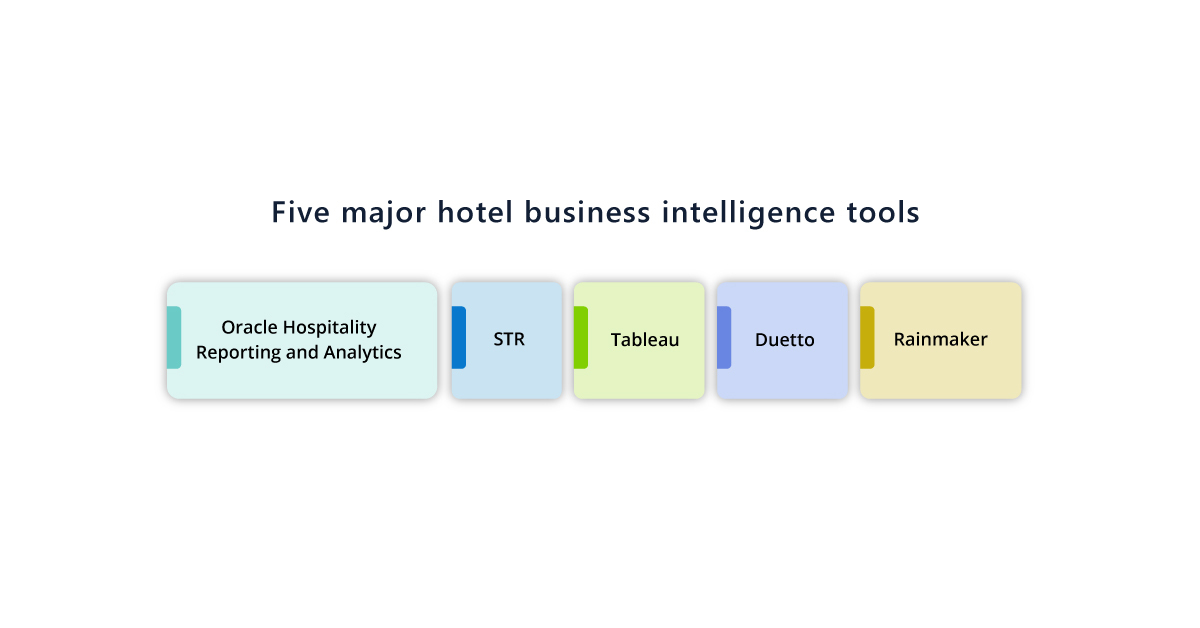
1. Oracle Hospitality Reporting and Analytics: This tool allows hotels to collect, integrate, and analyze data from various sources, including property management systems (PMS) and point-of-sale systems (POS). It also offers a variety of customizable reports and dashboards, as well as advanced data mining and modeling capabilities.
2. STR: The STR provides hotels with market data, competitive intelligence and trend analysis, STR’s data helps hotels to benchmark their performance against industry averages, analyze market trends and make informed business decisions.
3. Tableau: Tableau is a powerful data visualization tool that can help hotels to analyze and present data in an intuitive and interactive way. With Tableau, hotels can create interactive dashboards, reports, and visualizations that provide valuable insights into their operations and performance.
4. Duetto: This cloud-based solution allows hotels to analyze and optimize pricing, demand, and revenue. Duetto’s technology allows hotels to identify patterns and trends in their data, and to create dynamic pricing and revenue management strategies to increase bookings and revenue.
5. Rainmaker: Rainmaker’s revenue management system is cloud-based software that enables hotels to optimize pricing and revenue. It also provides forecasting, budgeting, and performance management features to help hotels make better-informed decisions.
These are just a few of the many hotels BI tools that are available on the market. It is important to keep in mind that every hotel is unique and has its own set of needs and goals. Therefore, it is important for hotels to evaluate the different BI tools available and determine which one best fits their specific needs.
Hotel business intelligence is pivotal for hotel chains and individual hotels looking to improve efficiency, increase revenue, and be on top of the competition’s movements. Hotels can be proactive and continuously improve by understanding and leveraging data, analyzing and visualizing it, and implementing the insights gained from business intelligence tools. The industry is constantly evolving, and BI is a way to keep up, stay ahead in the game, and drive growth with better visibility of business processes.

